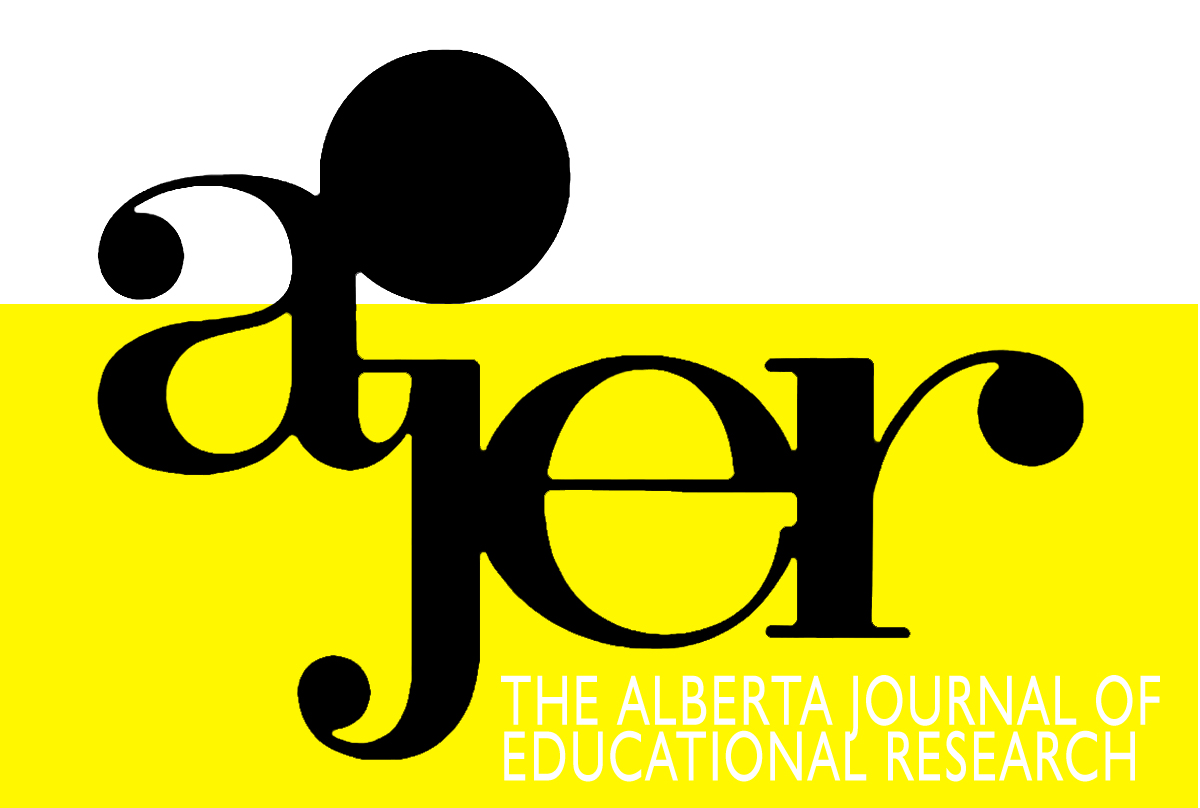French Immersion for English Language Learners?: Kindergarten Teachers’ Perspectives
DOI:
https://doi.org/10.55016/ojs/ajer.v62i3.56180Keywords:
Key terms, second language education, second language suitability, teacher beliefs, French immersion, access to French immersion, Mots clés, enseignement en langue seconde, adéquation d’une langue seconde, croyances des enseignants, immersion française,Abstract
Given the increasingly diverse, multilingual student body in Canada, the call for increased inclusion in education, and in light of research highlighting the potential for inclusion in French immersion (FI) to be limited by gatekeepers, this study examines the beliefs of kindergarten teachers regarding the inclusion of English language learners in French immersion where entry begins in Grade 1. The theory of planned behavior as discussed by Ajzen (2005) served as a theoretical lens through which the data were examined. In particular, through their responses to a mixed format questionnaire, including a 12 item Likert scale of agreement and open-ended questions, kindergarten teachers revealed that a) French immersion is not for everyone, and b) may be disadvantageous to English language learners in particular. The teachers grounded their beliefs in the importance and influence of English on students’ future endeavours. Beliefs that FI is not for all students were supported by the board’s provision of information to parents as revealed by a document analysis. Such findings highlight the need for information sharing on multilingual language acquisition to extend beyond administrators to include parents and additional educators who have the potential to influence parents’ choices for their children.
Compte tenu du corps étudiant canadien de plus en plus diversifié et plurilingue, de la demande pour une intégration accrue en éducation et de la recherche soulignant la possibilité que des gardiens limitent l’inclusion en immersion française, cette étude examine les croyances des enseignants de maternelle face à l’inclusion en immersion française d’élèves apprenant l’anglais (où l’apprentissage du français commencerait en 1re année). La théorie du comportement planifié telle que proposée par Ajzen (2005) a servi d’optique théorique pour l’analyse des données. Les résultats d’un questionnaire à 12 items (réponses sur une échelle de Likert et questions ouvertes) ont indiqué que, entre autres, les enseignants de maternelle croient: a) que l’immersion française n’est pas pour tout le monde et b) que les apprenants de l’anglais pourraient y être particulièrement défavorisés. Les croyances des enseignants reposaient sur l’importance et l’influence de l’anglais dans l’avenir des élèves. Une analyse documentaire a révélé que les croyances selon lesquelles l’immersion française n’était pas pour tous les élèves étaient appuyées par des informations remises aux parents de la part du conseil. Ces résultats soulignent la nécessité d’un partage d’informations sur le plurilinguisme et l’acquisition des langues au delà des administrateurs de sorte à inclure les parents et d’autres enseignants susceptibles d’influencer les choix que font les parents à l’égard de leurs enfants.
Downloads
Published
Issue
Section
License
UNIVERSITY OF ALBERTA COPYRIGHT LICENSE AND PUBLICATION AGREEMENT
If accepted, authors will be asked to sign a copyright agreement with the following points:
A. Where there is any inconsistency between this Copyright License and Publication Agreement and any other document or agreement in relation to the same subject matter, the terms of this Agreement shall govern.
B. This document sets out the rights you are granting in relation to publication of your article, book review, or research note entitled (the “Article”) through inclusion in the academic journal titled Alberta Journal of Educational Research (the “Journal”) published through the Faculty of Education, representing the Governors of the University of Alberta (the “Journal Editor”).
C. There will be no payment to you for this publication and grant of rights. In consideration of the agreement to publish the Article in the Journal:
1. You are warranting that:
- the content of the Article is your original work, and its content does not contain any material infringing the copyright of others; or, where the Article is not entirely your original work, you have obtained all necessary permissions in writing to grant the rights you are giving in this agreement;
- the content of the Article does not contain any material that is defamatory of, or violates the privacy rights of, or discloses the confidential information of, any other person;
- the Article has not been published elsewhere in whole or in part, and you will not allow publication of the Article elsewhere without the consent of the Journal Editor;
- the names of all co-authors and contributors to the Article are:
2. You agree to license the copyright in the Article to the Journal Editor, on a worldwide, perpetual, royalty free basis; and to the extent required by the terms of this agreement. You shall retain the right at all times to be acknowledged as the/an author of the Article.
3. You further agree that the Journal Editor has the entitlement to deal with the Article as the Journal Editor sees fit, and including in the following manner;
- The right to print, publish, market, communicate and distribute the Article and the Journal, in this and any subsequent editions, in all media (including electronic media), in all languages, and in all territories, ing the full term of copyright, and including any form of the Article separated from the Journal, such as in a database, abstract, offprint, translation or otherwise, and to authorize third parties to do so;
- The right to register copyright of the Journal;
- The right to edit the Article, to conform to editorial policy as the Journal Editor sees fit.
4. If any co-author or contributor to the Article does not sign this agreement, the Journal Editor reserves the right to refuse to publish the Article.



